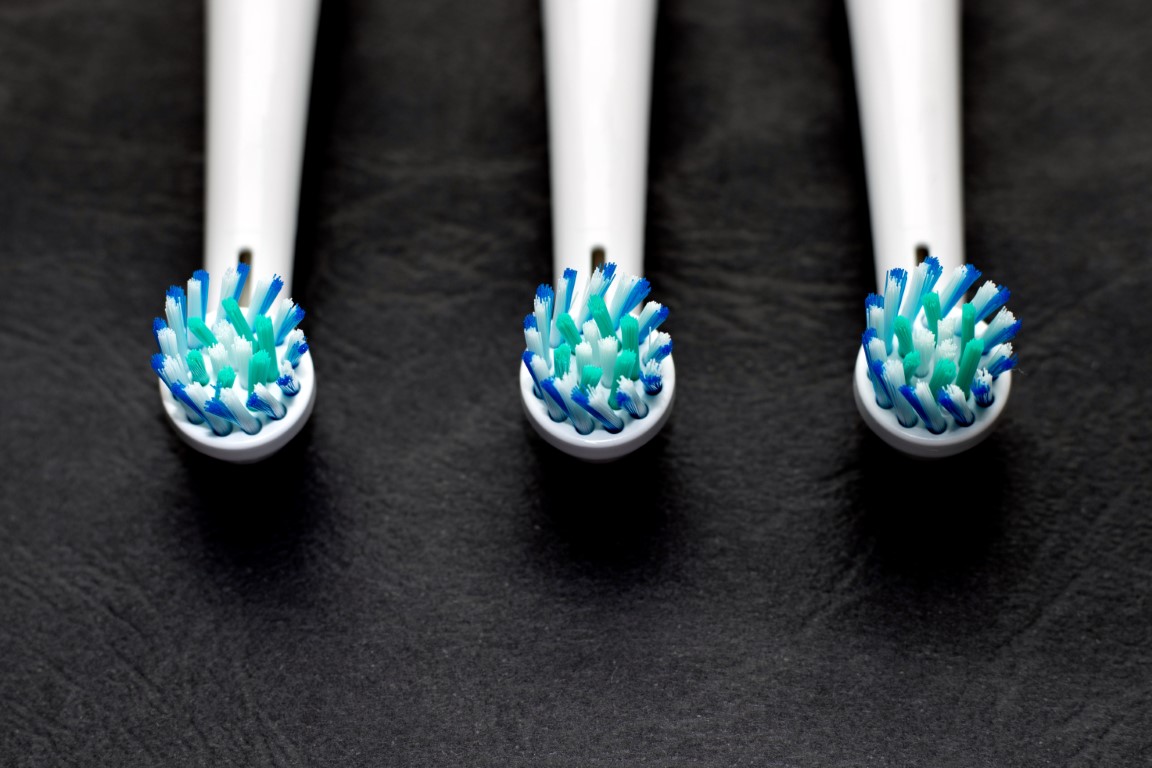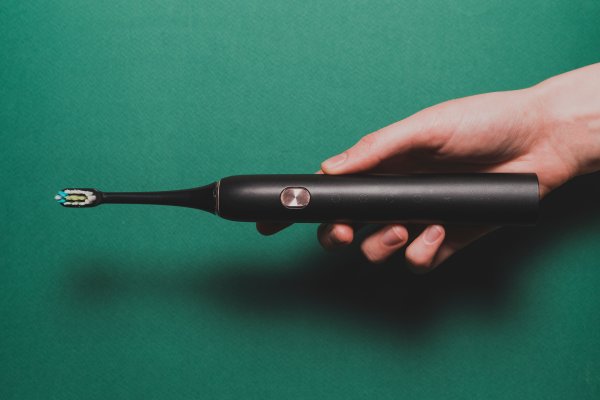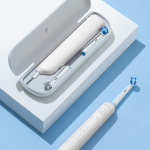If you're considering purchasing an electric toothbrush, you may be wondering if it's really worth the investment. Here's what you need to know to make an informed decision.
Is an electric toothbrush right for you? Find out in our article where we will guide you on what you should look for before buying an electric toothbrush.
Electric toothbrushes have some clear advantages over traditional manual brushes, and they're much more effective at removing plaque and bacteria and can also help whiten your teeth. An electric brush can also be a good choice if you have sensitive gums since it is less likely to irritate them.
That said, there are also some downsides to consider. Electric toothbrushes can be more expensive than manual ones, requiring batteries or charging to work. You'll also need to replace the brush head more frequently than you would with a manual brush.
When it comes to electric toothbrushes, there are a few different types to choose from. Each type has its own set of features and benefits that can be tailored to your specific needs. Here is a quick guide to the different types of electric toothbrushes available on the market today:
1. Standard Electric Toothbrush: The standard electric toothbrush is the most basic type of electric toothbrush available. It typically has a rotating head with bristles that spin in a circular motion. These toothbrushes are great for those who are looking for a simple and effective way to clean their teeth.
2. Sonicare Toothbrush: The Sonicare toothbrush is a more advanced electric toothbrush that uses sonic waves to clean teeth. These brushes are more expensive than standard electric toothbrushes but offer a more thorough cleaning.
3. Ionic toothbrush: Ionic toothbrushes are electric ones that produce ions or electrically charged particles to clean the teeth.
When it comes to oral care, we all want what's best for our teeth and gums. But with so many products on the market, it can be hard to know where to start. Electric toothbrushes are a great way to get a deep clean, and plenty of options exist. Here are some of the most popular brands of electric toothbrushes:
Oral-B is among the most trusted names in dental care, and their electric toothbrushes are no exception. From the Oral-B Pro 1000 to the Oral-B SmartSeries 7000, they have a brush for every need.
Philips Sonicare is another top choice when it comes to electric toothbrushes. Their HX6932/10 Sonicare FlexCare+ is one of the most popular models, thanks to its three cleaning modes and ergonomic design.
The final toothbrush brand that we were impressed with was Iona. This is a brand of electric toothbrush provider that had one of the best experiences for our reviewers. The ionic charge provided by the toothbrush seems to have helped keep our teeth feeling cleaner than the others. While it might have a higher price tag, it was one of the best-reviewed electric toothbrushes we have tried.
There are a couple of pretty big things to take into consideration when buying an electric toothbrush when compared to a manual one. An electric toothbrush should help keep your teeth clean for at least a year, so you will want to ensure you are getting the right one for your needs. Here is a list of the biggest things to take into consideration before you make that first purchase.
When it comes to electric toothbrushes, you get what you pay for. A reasonable budget for an electric toothbrush is around $100. However, some more affordable options still offer features that are important to look for when choosing an electric toothbrush.
Some electric toothbrushes can get over $300 and might be worth it for some people, but for our recommendation, we suggest starting with a cheaper one to get your feet wet. Some people just find electric toothbrushes aren't for them, so it is much better to find them out with a cheaper option than a high-priced one.
Electric toothbrushes might have the option of different brush head choices depending on the brand that you choose. Here are a few things to consider when choosing the right brush head for your needs:
Size: The size of the brush head is important to consider, as it needs to be able to reach all areas of your mouth.
Bristles: The type and density of the bristles on the brush head can make a difference in how effective it is at cleaning your teeth. Soft bristles may be gentler on your gums, while firmer bristles may be better at removing plaque.
Shape: The shape of the brush head can also impact its ability to clean your teeth. Some people prefer a round brush head, while others prefer an oval-shaped one.

Electric toothbrushes are more effective at reducing plaque and gingivitis than manual toothbrushes. However, there is debate as to whether ergonomics matter when it comes to electric toothbrushes. Some argue that the size and shape of the brush head are more important than the handle, while others believe that a comfortable grip is essential for proper brushing technique.
So, do ergonomics matter for electric toothbrushes? The answer may depend on your personal preferences. If you find that you can brush effectively with a particular brush, stick with it! However, if you struggle to reach all areas of your mouth or feel discomfort in your wrist or arm after brushing, it might be time to switch to a brush with a different handle design.
One of the most important factors to consider when choosing an electric toothbrush is battery life. Most electric toothbrushes will last for at least a few weeks on a single charge, but some models may only last for a few days. If you brush your teeth twice a day for two minutes each time, you should look for an electric toothbrush with a battery life of at least four weeks.
Another factor to consider is whether you want an electric toothbrush that is rechargeable or disposable. Rechargeable electric toothbrushes are more expensive, but they are also more environmentally friendly and convenient in the long run. If you travel frequently, you may want to opt for a disposable electric toothbrush so that you don't have to worry about bringing a charger with you.
When it comes to oral care, we all want what's best for our teeth and gums. But with so many products on the market, it can be hard to know the right way to use an electric toothbrush. Here are a few things to keep in mind when using an electric toothbrush:
1. Look for a brush with the American Dental Association (ADA) Seal of Acceptance. This means that the brush has been tested and proven to be safe and effective.
2. Choose a brush head that is the right size for your mouth. A smaller head will help you reach all areas of your mouth, including those hard-to-reach back molars.
3. Be sure to replace your brush head every three months or sooner if the bristles start to show wear.
While using an electric toothbrush might feel like it is getting the job done quicker, we actually have had the best results when using it for the same duration as a standard toothbrush. If you brush your teeth for between 2-3 minutes, you should have a significantly better cleaning experience with an electric toothbrush when compared to a manual toothbrush.
The most significant difference is the pressure you apply. With a manual toothbrush, your pressure and speed is the determining factor as to how clean your teeth are. With an electric toothbrush, you will actually use a lot less pressure as you want the high rotations of the bristles to do the back-and-forth mechanical cleaning of your teeth. If you find your gums bleeding or irritated, once you switch to an electric toothbrush, you might want to try not pressing down as hard.
When looking for a warranty for your electric toothbrush, you should look for one that covers the cost of repairs or replacements if the toothbrush is defective. A good warranty will also cover the cost of shipping if the toothbrush needs to be returned. Oral-B offers a two-year limited warranty on their electric toothbrushes. We were actually so impressed by their process that we did a complete write-up on ion, which is actually very easy to follow.
Electric toothbrushes have become increasingly popular in recent years. They are convenient, easy to use, and effective at cleaning teeth. But with so many different types and brands on the market, it can be hard to know which one to choose.

Here are two of the biggest things that can help you pick out the perfect electric toothbrush for you:
1. Consider your needs. Are you looking for a toothbrush that is gentle on your gums? One that is specifically designed for people with braces or other dental appliances? Or do you simply want a basic model that gets the job done?
2. Compare features. Once you've narrowed down your options, take a closer look at the features each brush offers. Some models come with built-in timers, while others offer different modes (e.g., whitening, deep cleaning) or even wireless connectivity.
When choosing an electric toothbrush, there are a few things you need to take into account. First and foremost, you need to consider what your specific needs are. Are you looking for an electric toothbrush that will get the job done or one that has all the bells and whistles? Once you know what you need, you can start narrowing down your options.
Next, you need to take into account your budget. There is a wide range of prices for electric toothbrushes, so it's essential to find one that fits your wallet. Finally, read reviews on electric toothbrushes before making your purchase, which will help you understand which electric toothbrushes are the best on the market.





